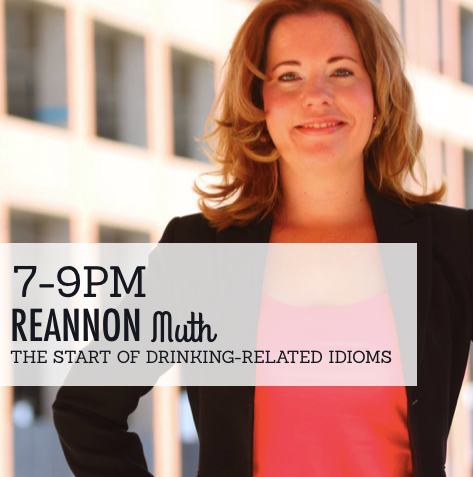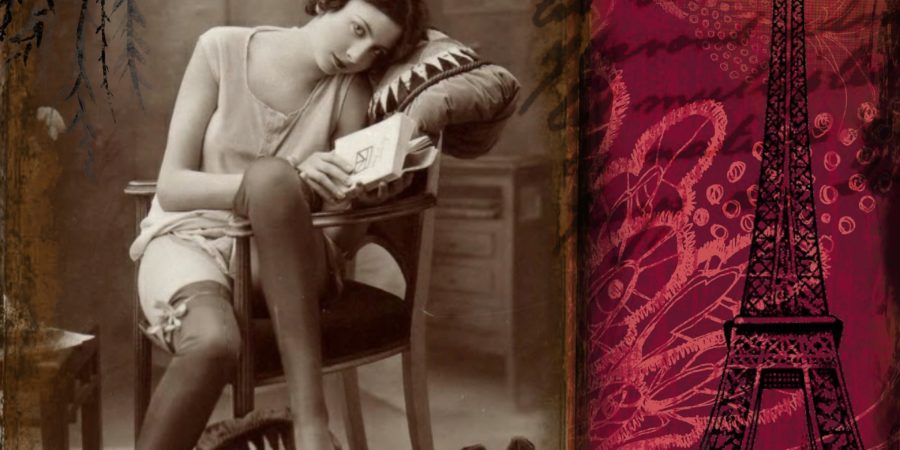Today I’ll be speaking at a bar in San Francisco about the history of speakeasies and the origins of several drinking and alcohol-related expressions. I was honored to be asked to speak by Reed & Greenough—a bar in the Marina District that is running a weekly speakers’ series called “Short Stories and Tall Drinks.” You can read all about it here: http://reedandgreenough.com/shortstoriestalldrinks/

I thought I’d give you a sneak peak at some of the phrases I’ll be highlighting tonight. If you’re in the San Francisco area, I encourage you to stop on by and say “hi”!
The History Behind Popular Drinking-Related Words and Idioms
1. Hooch
One drinking-related phrase made popular during the Prohibition Era was “Hooch”—slang for cheap or illicit liquor. According to the book Alaska Hooch: The History of Alcohol in Early Alaska, the word is thought to have originated in the mid-19th century from the word Hoochinoo, which was the name of a Native American tribe in Alaska. As the account goes, soldiers were sent to Juneau after Alaska became a US territory in 1867. Since alcohol had yet to be made widely available in The Last Frontier, military men looking imbibe were forced to get a little creative, making their own alcohol out of molasses, yeast, berries, sugar and flour, which they then traded with the nearby tribe, the Hoochinoo. The Hoochino loved the concoction so much they started manufacturing it themselves. Later, during the gold rush in 1898, miners came to the region and the drink the miners called Hoochinoo (or “Hooch”) became quite popular.
2. Bottoms up!
While you may assume that the drinking salute “bottoms up” relates to lifting and tilting the glass as you down a drink, its origin is more complex than that, according to the book Black Sheep and Lame Ducks: The Origins of Even More Phrases We Use Every Day.
During the 18th and 19th centuries in England, recruiters for the English Navy would try to persuade men to join the military by offering them a King’s Shilling. If they accepted the shilling, it meant that they had consented to join the ranks at sea.
In order to boost their recruitment numbers, some of the recruiters ran a scam that involved discreetly dropping a shilling into a drunk man’s beer when he wasn’t looking. Men wouldn’t notice the shilling until they’d finished their drink but by then it would be too late; the recruiter had already added their names to the draft list and they’d be hauled off to sea the next morning.
Once bar owners discovered the scam, however, they started serving alcohol in glasses that had clear bases. They’d then remind pub visitors to check their pints for illicit shillings by saying “Bottoms up!” before patrons took a sip or shot.
3. Three sheets to the wind
No one knew how to imbibe like a drunken sailor, so it may come as no surprise that a phrase that epitomizes being plastered is actually a nautical term. As it is described in the book Hair of the Dog to Paint the Town Red: The Curious Origins of Every Day Sayings and Fun Phrases, “sheets” was a word for the ropes that were used to control the sails on a sailboat and hold them in place. When a sheet broke or became loose, sailors would say that the sheets were “to the wind”. If three sheets were “to the wind”, the sails would flap and the boat would rock violently and veer wildly out of control, resembling the stumbling gait of someone who’d had one too many glasses of hooch.
4. Paint the town red
The term “paint the town red” owes its origin to a night when a group of drunk Englishmen got ahold of a can of paint and literally “painted the town red”—Or at least parts of it. As is reported in The Curious Origins of Every Day Sayings and Fun Phrases, the drunken bender occurred in 1837 in a town in England called Melton Mowbray. The culprit was the Marquis of Waterford, who was a well-known lush at the time. He and several friends reportedly went out for a night of drinking and then proceeded to travel through the town and vandalize several buildings and homes. In addition to knocking over flowerpots, breaking windows and pulling off door knockers, the band of drunken troublemakers painted several buildings and public monuments red. The townsfolk awoke the next morning to find their front doors, the town’s tollgate and even a statue of a swan had received a surprise red-paint makeover.
5. Hair of the dog
According to The Curious Origins of Every Day Sayings and Fun Phrases, the expression “hair of the dog” is a shortened version of “the hair of the dog that bit you.” In the Middle Ages in England, it was believed that if you were bitten by a dog, the wound would heal faster if you took one of the hairs from “the dog that bit you” and rubbed it on the infected area. Over the years, people began to use the same expression when referring to drinking an alcoholic beverage to cure a hangover. Though the “hair of the dog” may not work well as a wound treatment, some claim that it’s actually quite effective at treating the aftereffects of a wild night of overindulgence.
Want to learn more? Stop by Reed & Greenough between 7 and 9pm tonight to hear me speak!
Sources:
speakeasy. Dictionary.com. Online Etymology Dictionary. Douglas Harper, Historian. http://www.dictionary.com/browse/speakeasy (accessed: July 26, 2017).
Hair of the Dog to Paint the Town Red: The Curious Origins of Every Day Sayings and Fun Phrases by Andrew Thompson. 2017. Published by Ulysses Press.
Black Sheep and Lame Ducks: The Origins of Even More Phrases We Use Every Day by Albert Jack. 2007. Published by Penguin Group (USA) Inc.
Alaska Hooch: The History of Alcohol in Early Alaska by Thane L. Anderson. 1988. Hoo Che Noo Publishing.
A New Dictionary of Eponyms by Morton S. Freemon. 1997. Published by Oxford University Press.




Great, informative piece. Thank you. So many expressions we use all the time and although we may understand their modern meaning we have no idea from where they originate.
According to the legend, English sailors used to be bribed with coins to join the navy, and, many times, they would be tricked into joining by being given a beer with a coin at the bottom of the glass.